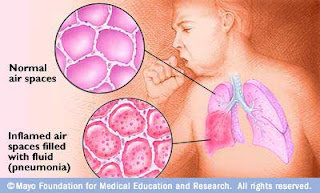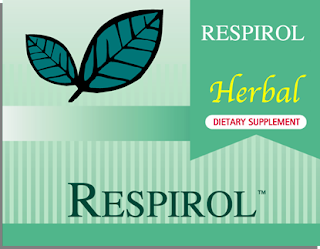 So, you have asthma?
So, you have asthma?
...or, is it pneumonia...or...tuberculosis perhaps...
or just a runny nose?
or just a runny nose?
Or worse...could it be a symptom of the swine flu virus (later renamed "influenza A H1N1 virus")?
Klinika Kinetics joins a handful group of health buffs trying to mitigate the panic created by irresponsible media outlets, government functionaries, and agencies, pontificating about the so-called pandemic.
Klinika Kinetics joins a handful group of health buffs trying to mitigate the panic created by irresponsible media outlets, government functionaries, and agencies, pontificating about the so-called pandemic.
Since the respiratory system is open to airborne micro-organisms and outside pollution, many ailments or maladies can afflict it.
Some respiratory disorders are relatively mild, and unfortunately, very familiar.
Common Colds
 Excess mucus (runny nose), coughing, sneezing, nasal congestion, headache, sore throat, muscle aches, and tiredness, are all symptoms of the common cold. A viral infection of the upper respiratory system, the common cold can be caused by one of over 200 different viruses.
Excess mucus (runny nose), coughing, sneezing, nasal congestion, headache, sore throat, muscle aches, and tiredness, are all symptoms of the common cold. A viral infection of the upper respiratory system, the common cold can be caused by one of over 200 different viruses.
An average individual usually suffers from between 50 and 100 colds during his or her life. Almost all colds clear up in less than two weeks without complications.
1. Sinusitis
Sinus pain and pressure is frequent. A sore throat and bad breath, resulting from drainage dripping down the back of the throat, may also occur.
2. Allergies
Allergies, abnormal immune reactions to otherwise harmless substances, are among the most common of medical disorders. Symptoms depend on the specific type of allergic reaction.
In the most common type of reaction, symptoms can mimic those of a nasal cavity infection: pressure, pain, a runny nose, congestion, and a scratchy or irritated throat.
SUGGESTED USE:
INGREDIENTS:
Some respiratory disorders are relatively mild, and unfortunately, very familiar.
Common Colds
 Excess mucus (runny nose), coughing, sneezing, nasal congestion, headache, sore throat, muscle aches, and tiredness, are all symptoms of the common cold. A viral infection of the upper respiratory system, the common cold can be caused by one of over 200 different viruses.
Excess mucus (runny nose), coughing, sneezing, nasal congestion, headache, sore throat, muscle aches, and tiredness, are all symptoms of the common cold. A viral infection of the upper respiratory system, the common cold can be caused by one of over 200 different viruses.An average individual usually suffers from between 50 and 100 colds during his or her life. Almost all colds clear up in less than two weeks without complications.
1. Sinusitis
When a cold lingers beyond that time period, the cause may be an inflammation of the sinuses, a condition called sinusitis. Caused by a bacterial infection, sinusitis is often mistaken for a common cold because the symptoms are somewhat similar.With sinusitis, congestion may be the same or even worse. While drainage from the nose during a common cold is often clear, drainage due to sinusitis is often thick and yellowish-green in color.
Sinus pain and pressure is frequent. A sore throat and bad breath, resulting from drainage dripping down the back of the throat, may also occur.
Sinusitis In Children
2. Allergies
Allergies, abnormal immune reactions to otherwise harmless substances, are among the most common of medical disorders. Symptoms depend on the specific type of allergic reaction.
In the most common type of reaction, symptoms can mimic those of a nasal cavity infection: pressure, pain, a runny nose, congestion, and a scratchy or irritated throat.
RESPIRATORY SYSTEM DISORDERS
1. Asthma. Respiratory disease often caused by an allergy that is marked by tightness in the chest and difficulty in breathing.
In normal bronchioles, the airway is open and unobstructed.
2. Bronchitis. Inflammation of the mucous membrane of the bronchial tubes.
1. Asthma. Respiratory disease often caused by an allergy that is marked by tightness in the chest and difficulty in breathing.
In normal bronchioles, the airway is open and unobstructed.
During an attack, the bronchioles of an asthma sufferer are constricted by bands of muscle around them. They may be further obstructed by increased mucus production and tissue inflammation.
2. Bronchitis. Inflammation of the mucous membrane of the bronchial tubes.
3. Cystic fibrosis. Genetic disease in which, among other things, the mucous membranes of the respiratory tract produce a thick, sticky mucus that clogs airways.
6. Tuberculosis. Infectious, inflammatory disease of the lungs caused by a bacteria that results in tissue damage.
4. Emphysema. Respiratory disease marked by breathlessness that is brought on by the enlargement of the alveoli in the lungs.
5. Pneumonia. Disease of the lungs marked by inflammation and caused by bacteria or viruses.
6. Tuberculosis. Infectious, inflammatory disease of the lungs caused by a bacteria that results in tissue damage.
RESPIROL BEST REMEDY for RESPIRATORY DISEASES
RESPIROL is designed to help with asthma, bronchitis, emphysema, and other respiratory allergic conditions, through an anti-inflammatory process, and by blocking the release of histamine, and stabilizing the membranes of mastocyte (a cell closely related to allergic reaction).
RESPIROL helps prevent an asthma attact, provide relief caused by shortness of breath, reduce cough, and expel phlegm, and promote normal breathing.
1 to 2 vegicaps twice daily.
For best results, take RESPIROL for at least 8 consecutive weeks. If under medication, allow 3-4 hours interval in-between prescribed drug and health supplement intake. We suggest, for fast-acting result, RESPIROL be taken with IMMUNOL vegi-capsules.
Pine Sprouts B.E.E. - contains an essential oil that can stimulate serous bronchial gland function, suppress mucous gland function, and aid with expectoration (hawking up of phlegm). Pine sprouts can also help to dry secretions. They demonstrate mild antiseptic effects. They are also useful for upper and lower respiratory tract mucous membrane inflammation, common cold symptoms, coughs or bronchitis, nasal congestion, hoarseness, fever, and people who have a tendency towards infection.
- CoQ10 - in addition to benefiting immune function, CoQ10 is also a powerful free radicals cleaner, and has the ability to counter histamine, which is involved in both allergies and asthma.
Flax Seed B.E.E. - is high in essential fatty acids, such as alpha-linolenic acid, linoleic and oleic acids. These essential fatty acids are needed for the production of anti-inflammatory prostaglandines. Linoleic acid and alpha-linoleic acid are also required for the structural integrity of all cell membranes, which is very important for maintaining the normal physiological function of cell. A great many anaphylactic diseases, such as Asthma, Allergic Pallenasis, and Allergic Nasitis are closely related to the change of the structural integrity and permeability of cell membranes of mastocyte (a type of cell).
Pine Bark B.E.E. - contains phytochemicals known scientifically as Oligomeric Proanthocyanidin complexes (OPCs) that appear to stabilize the walls of blood vessels, reduce inflammation, and have anti-allergic qualities. These activities occur on the basis of OPC's antioxidant activity, for free radicals can immediately stir up inflammations. In addition to allergen activation, allergies and asthma, both involve histamine release. In the United States, allergies are often treated with anti-histamine. Pine Bark B.E.E. acts to prevent histamine release in the first place, thereby reducing all adverse effects of histamine and not just interfering with their effects on target cells. It is suggested that OPC's are a better approach to allergy and asthma management than anti-histamine.
RESPIROL is available by text or calling 0997-430-6358 (TM)

